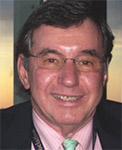Review | A JOURNEY FOR PEACE: A JOURNAL OF PEACE by Donald Yates (The Philippines)
A Journey For Peace: A Journal of Peace
Donald Yates (The Philippines 1962–64)
Austin Macauley Publishers
122 pages
March 2023
$10.95 (paperback)
Review by Douglas Garatina (Ghana 1971-1973)
• • •
“Ask not what your country can do for you; ask what you can do for your country.”

Donald Yates
The Philippines
It didn’t take long for Don Yates to answer this challenge made by President Kennedy. He made the decision to join the recently formed Peace Corps. In 1962 Don transitioned from a recent college graduate living in Glen Ridge, New Jersey, to an elementary school teacher on the very remote Philippine Island of Jolo in the middle of the Sulu Sea. To make things even more interesting, the people on Jolo were Muslims even though 95% of Filipinos were Catholic, so Don’s Peace Corps training did not prepare him for the Muslim traditions and culture he was about to enter.
His training as an English major at the University of Notre Dame instilled in him the importance of keeping a very detailed journal documenting his two-year Peace Corps experience in Jolo. The chapters in this book are salient episodes gleaned from his journal. Each chapter describes an independent experience during his time of service. This book review is designed to give the potential reader of the book a cursory glimpse into these exciting and sometimes exotic experiences in order to pique a desire to want to read the entire book. Rest assured, it is a quick and easy read based on the fact that each chapter stands on its own, and the writing style flows easily from the pen of a trained writer.
From the time Don arrived in the small Jolo town of Bilaan and found out that his new house was still an empty lot, he knew he was in for a challenging experience. Fortunately, a local man named Simplicico Ebol, who was nicknamed “Tex” because “he had fought for the United States in the Spanish-American War in the early 1900’s” took Don under his wing and taught him many of the skills he would need to be successful and happy in Bilaan. He became Don’s closest friend and protector during his Peace Corps years and the person he missed most when he returned to New Jersey.
Don made many friends in his small town and consequently was invited to many rituals and celebrations such as a five-hour Muslim baptism where his Peace Corps roommate, Jack, became the godfather of the baby, and a ritualist funeral where “all the mourners picked up handfuls of dirt and threw them into the tomb of the deceased child.”
Don’s Peace Corps assignment was to teach elementary school English and physical education, as well as to become engaged in community development.
As the school year progressed, he noticed that the school had received aid in the form of science teaching supplies, but he never saw the teachers using them in their classrooms. When he questioned the staff, they said they were afraid to use the equipment because if anything got damaged, they were required to pay for the replacement, and their low salaries prohibited this. In typical Peace Corps fashion, Don encouraged them to use the equipment and said that if anything should get damaged, he would personally pay for the replacement — this led to the beginning of hands-on science activities at the school. In his capacity as a physical education teacher, he started the school’s first basketball team using a homemade basket and backboard.
There are many exciting characters you will encounter in this book, including Don’s spider monkey companion named “H.A.,” the man who explained everything using a single word (“Quan”), a flamboyant boxer named “Bottling Torres,” and many more.
Although this was an enjoyable read, it is suggested that the author consider writing a companion book that weaves these independent chapters into a continuous story with deeper character development. From an educational point of view, a chapter or two dedicated to the author’s actual teaching experiences and how his students responded to instruction from an American, would add more insight into the realities of an “early” Peace Corps volunteer’s life in a remote part of the world.
• • •

Doug Garatina (Ghana 1971-73 )
Reviewer Doug Garatina received his Bachelor and Master degrees from Trenton State College. He entered the Peace Corps in 1971 and was assigned to teach science, math and teaching methods at a Teacher Training College in Ghana, West Africa.
Upon returning to the United States, he continued his teaching career in public education. He spent the next 34 years as a science teacher and administrator. Doug is currently retired and serves on the RPCV-NJ Board of Directors as the Social Events Chair.
No comments yet.
Add your comment